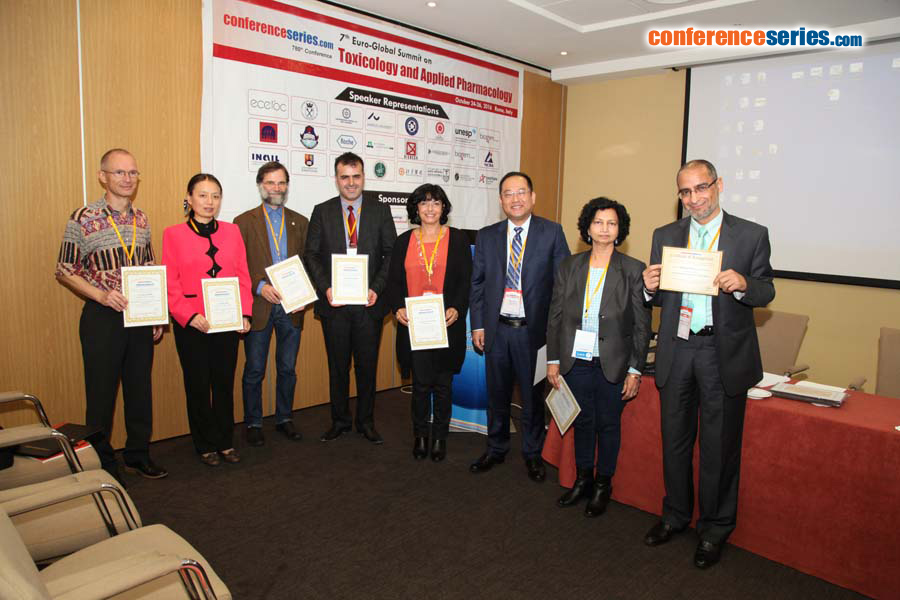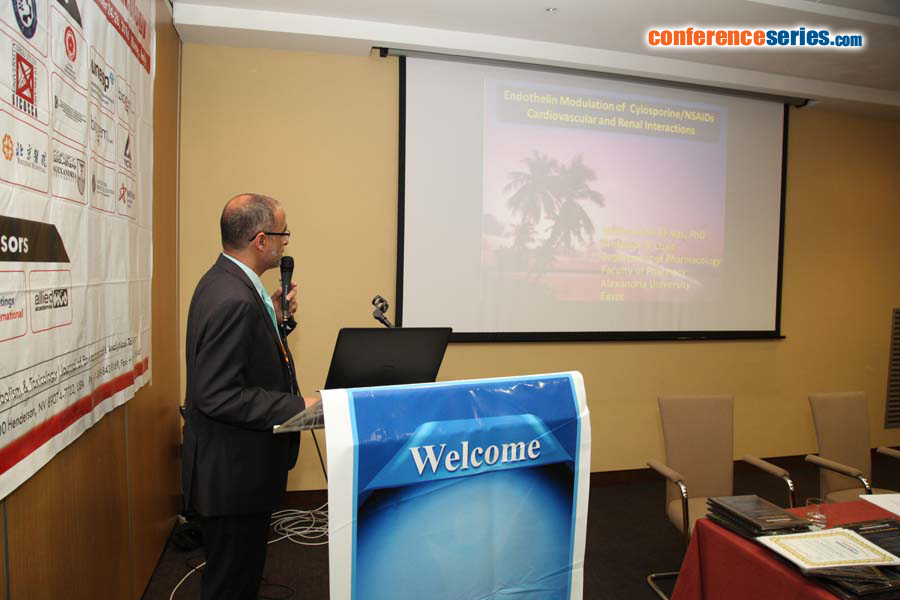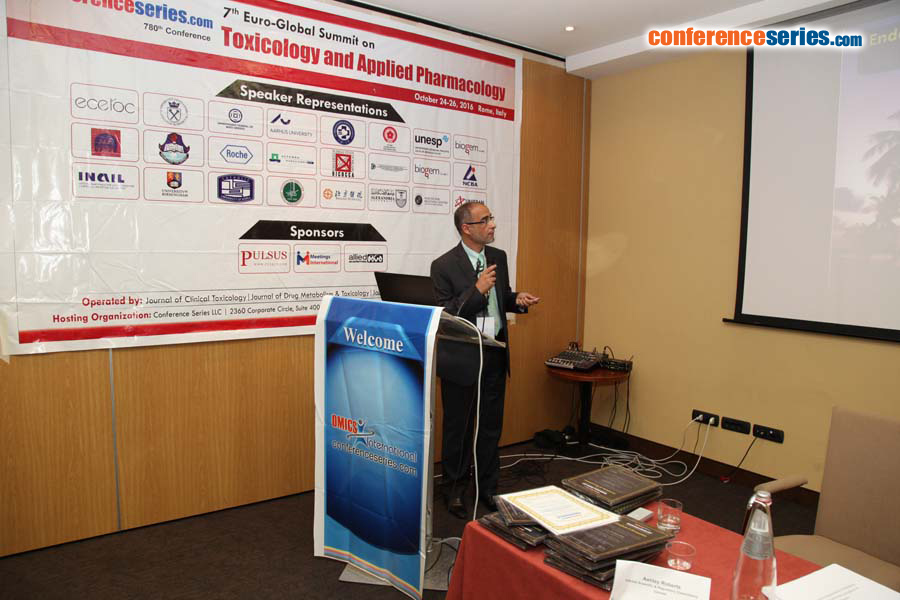Mahmoud M El Mas
Alexandria University, Egypt
Title: Endothelin modulation of the cyclosporine/NSAIDs cardiovascular and renal interactions
Biography
Biography: Mahmoud M El Mas
Abstract
The combined use of cyclosporine (CSA) and nonsteroidal anti-infl ammatory drugs (NSAIDs) in arthritic conditions is common in clinical practice. Because CSA or NSAIDs negatively impacts cardiovascular/renal functions when used
individually, we asked if these two drug modalities would provoke more detrimental consequences when used together. The roles of endothelin receptor, inflammatory and fi brotic pathways in these interactions have also been investigated. The treatment of rats with celecoxib, but not indomethacin, blunted the CSA-evoked increases in blood pressure (BP), renal perivascular fi brosis and arteriolar endothelin receptor expression (increases in ETA and decreases in ETB receptors). Alternatively, exaggerated nephrotoxicity was seen upon simultaneous treatment with CSA plus indomethacin as evidenced by greater elevations in serum creatinine and renal oxidative stress; renal infiltration of infl ammatory cells and worsening of fi brotic and necrotic
profi les; and increased renal ET-1 and COX-2 expression. Unlike indomethacin, renal structural, oxidative, and molecular abnormalities caused by CSA were largely eliminated in rats treated concurrently with celecoxib. ETA receptor blockade by atrasentan ameliorated the hypertension and concomitant renal abnormalities caused by CSA/indomethacin regimen. On the other hand, ETB receptor blockade (BQ788) caused celecoxib-sensitive hypertension and renal dysfunction and potentiated the hypertensive eff ect of CSA. These fi ndings suggest that COX-1/COX-2 selectivity of NSAIDs is pivotal for identifying their cardiovascular and renal impacts on CSA toxicity. Celecoxib, but not indomethacin, is more advantageous as an add-on therapy to CSA for arthritis management. The reliability of the current experimental findings needs to be corroborated with appropriate clinical investigations.






